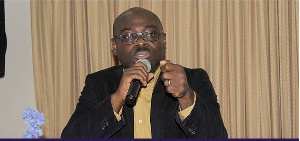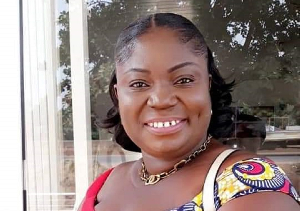- Home - Sports
- Soccer Portal
- Archived Sports News
- Sports Videos | TV
- Year In Review
- Sports Photos
- Sports Headlines
- Boxing
- Athletics
- Basketball
- Bodybuilding
- Cricket
- Golf
- Handball
- Hockey
- Martial Arts
- Tennis
- Volleyball
- Other Sports

Sports Features of Friday, 13 December 2013
Source: Abdulai Aboagye
Akwasi Appiah, Black Stars Qualification and the Walatuwalaza Project
By Abdulai Aboagye
The deafening euphoria that greeted Ghana’s third successive qualification to the 2014 World Cup in Brazil goes a long way to show how Ghanaians love the great game of soccer. What made it more special is the fact that this time a native son, a good servant of the nation with all locally bred technical team, achieved the feat previously reserved for the so-called foreign expatriates. James Akwasi Appiah goes into annals of Ghana as the first indigenous coach to qualify the national team to the World Cup. Akwasi Appiah known in his playing days as Mayele or Capito has perhaps opened the door to greater things to come for Ghanaian coaches and hopefully Ghana as a whole. For some of us, the Black Stars qualification under a local coach is microcosm of the idea that we as Ghanaians and Africans as a whole can manage our own affairs and achieve greater things to give meaning to the hopes of our founding fathers who sacrificed their lives to wean us from colonial bondage. This is the notion of walatuwalaza.
The notion of walatuwalaza simply means self reliance, self confidence and self belief. It also means appreciating what we have nurturing them and making the needed changes and sacrifices to achieve the desired results. This means that instead of thinking that some our problems can only be solved by other people elsewhere, we should see ourselves as a people capable of solving our own problems provided we make the right choices. This does not mean that we should create a cocoon and live in as a nation, no, but we should deal with other nations as a capable nation which has earned our place in the global dinner table. The question is how we can achieve the objectives of the walatuwalaza project. Below are some enumerated ideas which the writer believes if adhered to can lead us to the promise land of self reliance and self determination.
The first thing that comes to mind is leadership. Every nation is as good as it leaders. For the walatuwalaza project to take off, we need leaders who would hold themselves accountable to us the electorate and hold themselves in check. We need leaders who apply the rule of law fairly regardless of whom it affects. For far too long, Ghana has had leaders who see the faults in others but themselves. No Ghanaian President, Head of State or Excellency has been able to rein in on its own members. The effect is the rampant looting of national coffers which has been our potion since independence. We cannot continue on this path and expect to be counted among the developed nations of the world.
The next thing that comes to mind is acknowledging and appreciating what we have. For whatever reason, Ghanaians seem not to appreciate what we have. We seem to think that the grass is always greener elsewhere especially when it comes to white people. We have all the ingredients in front of us but we look elsewhere for answers. Nations that have developed look to themselves for answers to their problems. They believe in their own abilities to solve their own problems. They take advantage of what they have to get a competitive edge over other nations. Unfortunately for us, the opposite is true. Our educated sons and daughters are simply pseudo white men and women, who once they get education, become disconnected from the very society they are supposed to help. Most great inventions come from things people observed in their own localities. Take the claim by our herbalists about the efficacy of herbal medicines to treat some of the world’s most dreadful diseases. Nobody in Ghana has ever dreamt of looking into them to see if they are true or not. Yet tomorrow some Whiteman will come down and steal them and we will in turn run to him to buy the very thing we frown upon in our backyard. In America one of the revered cream products is Shea butter which we have in abundance and trample upon. Until we come to terms with our own environment we can never develop.
The other thing that comes to mind is being proactive and not reactive. Love them or hate them, the GFA’s decision to protest vehemently the decision to play the game in Cairo paid off. For one thing it put pressure on FIFA and the Egyptians to ensure that the safety of our players, supporters and officials was protected. It also ensured that officiating was fair. If the walatuwalaza project will work then as a nation we must learn to grab the bull by the horn, and confront our problems proactively before they overtake us.
Giving the right conditions, motivation and actions, the Ghanaian is second to none in any human endeavor. We must therefore believe in ourselves as a nation capable of solving its problems with its own people and resources. Globetrotting for expatriates who are no better than us will not help us.
God bless Ghana and let the walatuwalaza project begin.










